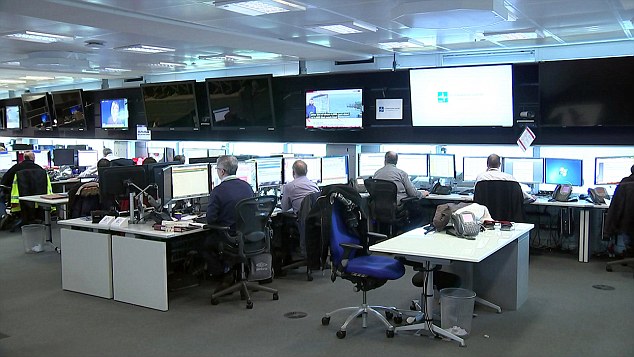 GCHQ Headquarters in Cheltenham, Gloucestershire
GCHQ Headquarters in Cheltenham, GloucestershireThe British intelligence service GCHQ (Government Communications Headquarters, Center for Government Communications) is experiencing serious problems with the recruitment and retention of personnel - namely, computer security specialists. Now the demand for such employees is especially high. The
GCHQ report for the last fiscal year (pdf) indicates that in 2015-2016, the intelligence agency spent 24 percent of its budget on cyber operations - this is the largest expenditure item of intelligence officers. It is followed by the fight against terrorism (counter-terrorism operations) - 23% of the budget. That is, more resources are spent on information security than on the fight against terrorism. These are the realities of the 21st century.
The 40th page of the report states that in recent years, GCHQ "does not cope with hiring and retaining suitable and sufficient staff to fill full-time vacancies of technical specialists, because the agency will inevitably have to compete with large technology companies that pay much more."
In 2013, GCHQ reported that it implemented a “more flexible remuneration package for technical specialists.” Now the government has requested information on how this scheme has taken root in the past years and how effective it has been. GCHQ representatives replied that “the scheme is effective to a certain extent. It prevents the outflow of specialists from certain areas at certain stages of their career, ”but the secret service still continues to lose personnel due to lower wages.
It can be assumed that a similar problem with technical experts is observed in the Russian special services, which cannot compete on wages with commercial companies.
"We are not able to compete with the four-, fivefold difference in salaries that they receive there," the words in the report are recorded from the transcript of the oral presentation of the GCHQ representative before the parliamentary committee on intelligence and security on December 8, 2016. He also added that the secret services probably "will never be able to compete purely in terms of the amount of payment". Nevertheless, GCHQ is optimistic about the possibility of hiring new talents, because for many professionals, experience in such an organization outweighs the commercial benefits of working in companies like Google and Facebook, not to mention the various startups that develop all sorts of frivolous things to please the general public. Some people think that you can’t spend your talent on such meaningless work - and choose a career in intelligence and national security, where they are working on really important, unique projects.
“We are competitive in our mission, decent work, interesting work, and a variety of tasks,” said a GCHQ representative. - If you are a pure mathematician, then we are the largest employer for pure mathematicians in the UK. Moving into this kind of [commercial] company can turn into disappointment. Very good pay, but a rather dull job ... You can go and become an actuary in the city, and make a fortune, and apply math, but it doesn’t compare with the way we use math here. ”
To increase the attractiveness of long-term work in the GCHQ, the special services have developed special “career paths” for technical specialists. This required, among other things, the reassignment of some of the roles of high-ranking officers. Probably now technicians can claim these roles.
GCHQ is gradually adapting to new realities and is getting used to the idea that it is impossible to keep everyone in the organization’s staff. Therefore, mechanisms are now being established to maintain contact with former employees, whose services the special services can periodically use after their dismissal. For example, as part of contract work: “In the past, our culture assumed that when a person leaves an organization ... we never contact him again and do not allow him to enter the building. I think we will have to change this ... We cannot completely resist the current ... and of course we want people to go to the private sector and improve the information security industry, for example, in the UK. So losses are not completely losses if we get good professionals from the bottom of the organization, and we get. So I think that we have slightly changed our attitude and do not regard the departure of each person as a gigantic loss. ”
However, the lack of staff still makes itself felt, so now GCHQ is forced to transfer many of the work to "temporary contracts" with foreign companies. And this is a rather dangerous occupation, as is known from the story of Edward Snowden, who performed the work under the contract for the NSA. Over the past year, GCHQ has allocated £ 71 million to pay for temporary contracts.
In 2016, GCHQ hired 22% fewer employees than planned (500 instead of 660), but in the next few years it is going to increase its staff by 14% and bring it to 6,639 people by March 2020.